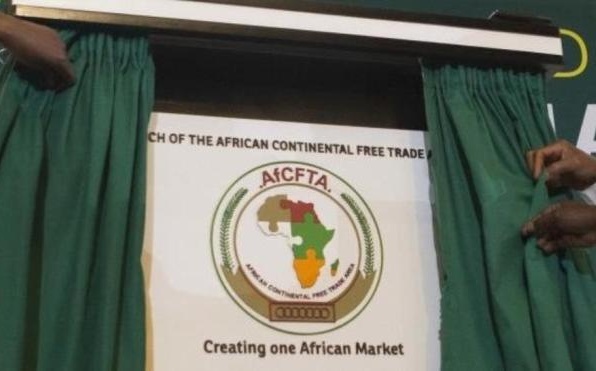Thirty-one years have passed since the UN General Assembly proclaimed November 20 “Africa Industrialization Day”, but the quest remains elusive.
Limited progress in industrial development has restricted the participation of African countries in international trade to the import of manufacturing goods and export of primary products. But the relatively high share of manufacturing goods in intra-African trade suggests that enhanced intra-regional trade is key to unlocking the industrial potential of the continent. African countries have taken a major step in this direction with the establishment of the African Continental Free Trade Area (AfCFTA).
The challenge facing African countries is not just to industrialize but to do so in an inclusive and sustainable manner. Past industrializations were fuelled by cheap fossil fuels with virtually no legal constraints on their use, even as we learned that fossil fuels account for the majority of global greenhouse gas emissions.
African countries hardly contributed to the emissions, but they are among the most vulnerable to climate change. The traditional path to industrialization will expose the continent to further environmental risk and degradation. So ensuring sustainability is not just a matter of choice but of necessity.
Powering African Industrialization
Sustainable industrial development entails the use of cleaner technologies and production techniques to reduce industrial emissions and waste. However, the use of renewable energy technologies is currently limited in most African countries despite the abundance of solar, wind, geothermal, and hydropower resources. The AfCFTA, even though its implementation has been derailed by the global pandemic, offers the opportunity to overcome some of the barriers to the development and deployment of those technologies.
The Free Trade Area’s negotiations are in two phases covering trade in goods and services, dispute settlement, investment, intellectual property, and competition policy. The first phase, on goods and services, is still in progress. All parties are to liberalize 90% of their tariff lines and reserve the remaining 10% for sensitive and excluded products.
It is imperative that the AfCFTA parties prioritize such products for energy efficiency and renewable energy products for early liberalization. Action on priority services sectors can also promote sustainable industrial development. The liberalization of business services, for example, covers renewable energy services such as solar panel installation, repair, and maintenance. Market access commitments in the relevant sectors will enable African renewable energy companies to provide services across the continent.
The second phase negotiations — covering investment, intellectual property rights, and competition — allow African countries can incorporate sustainability into their regional investment, competition, and intellectual property regimes.
Securing Industrial Policy Space
The AfCFTA should also play a role in securing green industrial policy space for African economies.
Subsidies and infant industry protection have been key to past industrializations. However, the “kicking the ladder away” approach of industrial economies and the ascendancy of neoliberal views forced these industrial policies out of fashion, and also out of law, over the past few decades.
Industrial policies are back, but constraints against their adoption are ingrained into and reinforced by international economic agreements of the last few decades. Most African countries are parties to international accords that tie their hands against the adoption of industrial policy instruments. Multilateral arrangements, such as the Agreement on Subsidies and Countervailing Measures, restrict the use of such instruments.
African countries should cooperate under the umbrella of the AfCFTA to demand more green policy space in international economic agreements. One of the key promises of the Free Trade Area is to enable African countries “speak with one voice and act collectively” to promote the common interests and positions of African countries in the international arena.
While it lacks a common external trade policy, nothing prevents the AfCFTA from serving as a forum for coordination of this policy, at least in areas where there is an apparent common interest.
A Time for Sustainability
The AfCFTA offers African countries the opportunity to advance their sustainable industrialization by creating a single and integrated continental market. But seizing this opportunity requires the removal of barriers to intra-regional trade and investment in sustainable energy technologies.
This also requires a concerted effort to secure green industrial policy space for development of a competitive African industry that produces sustainable energy technologies such as solar panels and cells, wind turbines, and wind towers.
Sustainability has not featured explicitly in the AfCFTA negotiations so far. But, with negotiations on market access commitments ongoing, this is the vital time for the greening of the AfCFTA.






